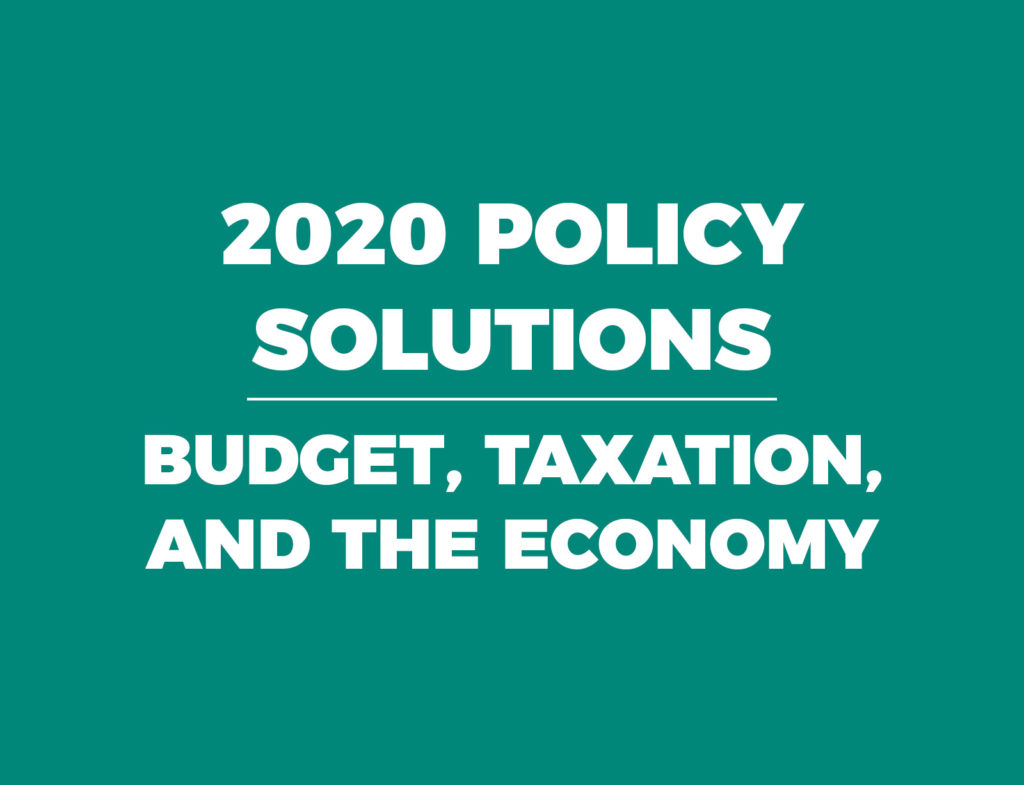Introduction
North Carolina has one of the strictest balanced-budget requirements in the country. It requires not just balance on paper, but that the governor “shall effect the necessary economies in State expenditures” to avoid “a deficit for any fiscal period.” Despite that, governors and legislators for several decades moved North Carolina away from fiscal responsibility and created a political culture in which increasing taxes, with the intention to spend more, was normal policy.
Republican leadership in the General Assembly since 2011 has kept General Fund appropriations below forecast inflation and population growth in its budgets. Total spending, including federal funds and other sources, began to come down in 2016. This spending restraint has made it possible to increase savings and cut taxes, leaving state finances better able to weather the next economic downturn. The billion-dollar tax cut that takes effect in 2019 makes continued restraint even more imperative.
Without a constitutional amendment to restrain state spending, a variety of pressures could lead future legislatures to return to the spend-and-tax patterns of the past, weakening the solid fiscal base being established now. A constitutional amendment to keep inflation-adjusted spending per person at or below current levels would help protect North Carolina taxpayers from future tax increases.
Key Facts
- General Fund budgeted appropriations adjusted for population and inflation were lower in Fiscal Year (FY) 2017-18 than in Fiscal Year 1996-97. In real terms, the budget per person was $2,225 in 2017, down from $2,264 in 1997.
- Adjusted for inflation, budgeted appropriations in FY 2017-18 were $416 less per person than the peak of $2,641 in FY 2007-08.
- General Fund appropriations are 51 percent of total state spending in FY 2017-18, down from 63 percent of spending in FY 1988-89. Federal funds in the state budget have climbed to 28 percent in FY 2017-18 from 20 percent in FY 1988-89.
- Including federal funds, lottery revenues, and all other receipts, total budgeted spending per person, adjusted for inflation, has grown from $3,979 in FY 1996-97 to $5,072 in FY 2017-18, an increase of 27 percent. Total spending peaked at $5,831 per person in FY 2011-12.
- Although General Fund appropriations were historically low at 5.3 percent of personal income in FY 2015-16, total state government spending took 13.2 percent of personal income that year, up from a low of 9.5 percent in FY 1983-84.
- Government savings in the rainy-day fund, also known as Savings Reserve, has climbed to 9.1 percent of General Fund appropriations, the highest level yet.
Recommendations
- Add an amendment to the state constitution to limit annual state General Fund appropriations and total spending growth to no more than the combined rate of population growth and inflation. The amendment should allow spending growth to exceed the cap only if approved by public referendum. Such a spending cap would better align the long-term interests of taxpayers to the short-term interests of politicians.
- The amendment should mandate that any revenues collected above the annual spending cap be deposited into a rainy-day fund or returned to taxpayers.
- The amendment should be written to avoid the ratchet-down effect. In periods of revenue shortfall, budget expenditures should be held constant until revenues recover and again exceed that limit. The rainy-day fund would be used to offset at least part of the revenue shortfall.
- The amendment should establish other constitutional constraints on fiscal policy. For example, it should include a requirement that any state tax hikes receive supermajority approval from the state legislature.



